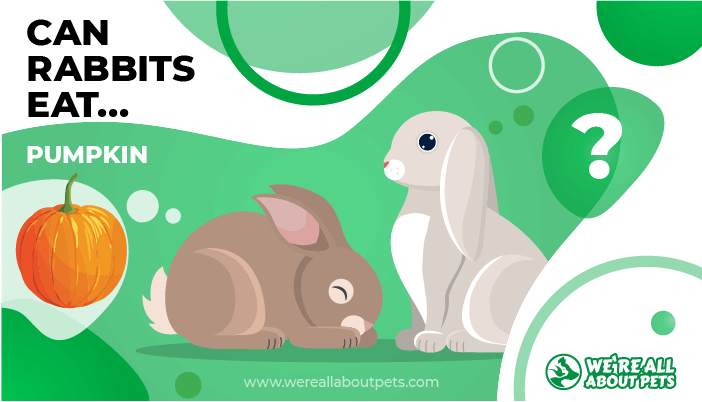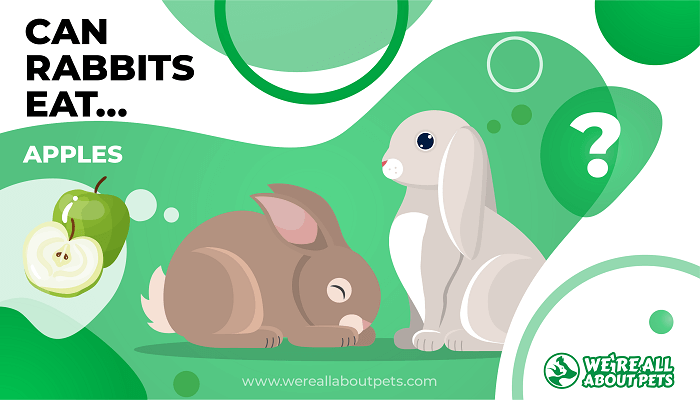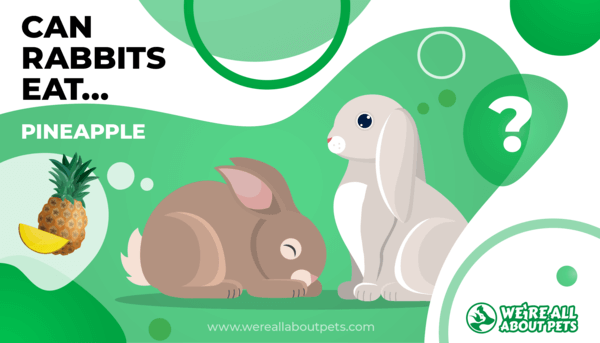Can Rabbits Eat Spinach?
This page contains affiliate links. We may earn money or products from the companies mentioned in this post through our independently chosen links, which earn us a commission. Learn More
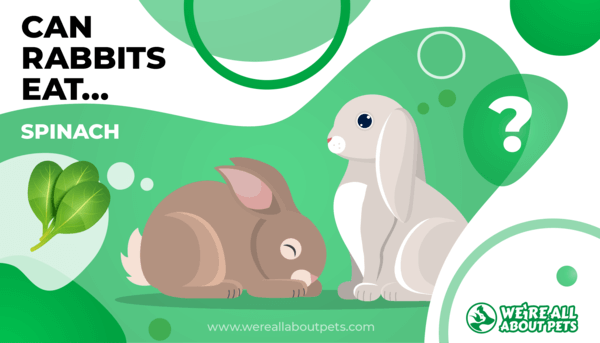
If your mom told you that eating spinach would help you be healthy, then she was definitely right!
Spinach is one of the healthiest vegetables around, but it isn’t without its limitations; too much of it can leave us prone to kidney stones because of a compound called oxalic acid.
So, what about our bunnies? Does oxalic acid affect rabbits? Is spinach even OK to give to our pet bunnies? And if it is, how much is OK?
It’s a confusing topic, to be sure – but we’re here to help. The short answer is “Yes, rabbits can have spinach, but not too much.”
Keep reading for our complete guide to spinach for rabbits.
Spinach Nutrition Stats
Spinach is a “great for you” veggie for a reason: Like many other leafy greens, it is brimming with powerful antioxidants, and it’s full of vitamins and minerals.
A one-cup serving of raw spinach offers an average of:
- 7 calories
- 1 g carbohydrates
- 7 g fiber
- .9 g protein
- .1 g fat
Spinach Nutritional Facts
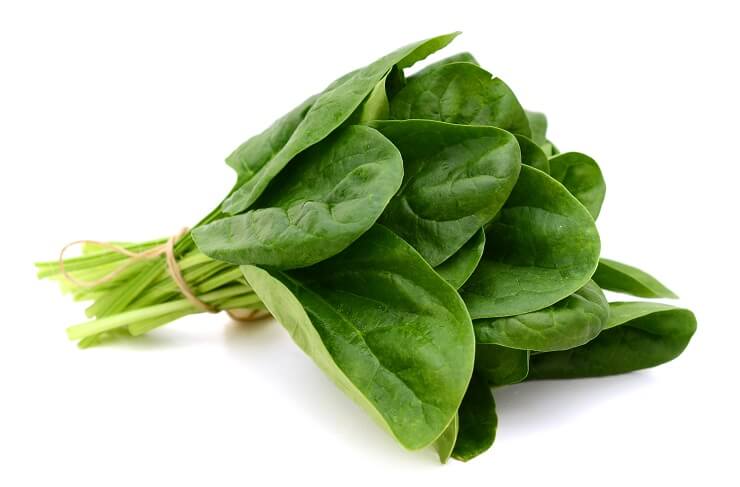
Good news for you (and your rabbit!) If spinach is on the menu, you’re going to get quite a bit of nutrition despite the fact that spinach is really low in calories – in fact, it offers about half the recommended daily intake of vitamin A!
That same one-cup serving of raw spinach gives you approximately:
- 4 mg vitamin C
- 2813 iu vitamin A
- 167 mg potassium
- 7 mg calcium
- 7 mg magnesium
- .8 mg iron
- 145 mcg vitamin K
- 2 mcg folate
- 7 mg phosphorus
Can Rabbits Have Spinach?
Yes -and your rabbit will probably enjoy every moment spent nibbling this nutritious, delicious plant.
Is Spinach Good For Rabbits?
Even though you need to be careful about how much spinach you feed your rabbit and how often you add it to your bunny’s menu, spinach is very good for rabbits simply because it is so dense in essential nutrients.
Do Rabbits Like Spinach?
While there might be a few outliers, we’ve never met a rabbit that didn’t like spinach!
You can check to see if your rabbit likes spinach by offering them a single leaf of fresh spinach and watching their response.
Happy nibbling means they like it!
How Much Spinach Can A Rabbit Eat?
Is there such a thing as too much spinach? That’s a definite yes: Here’s how much spinach a to feed your rabbit:
| Age | Amount |
| Baby rabbit | None |
| Adult rabbit | 1/3 cup to 1 cup of fresh spinach leaves |
Since the oxalates in spinach binds minerals together and renders them insoluble, excess intake can cause kidney stones or bladder stones to form. If this happens, your rabbit will be in serious pain, and will need professional treatment. It takes a lot of oxalic acid to create stones, but these can build up over time.
So offer only the recommended amount of spinach to your rabbit and make sure you don’t feed it to them on the same day you offer other vegetables that contain high levels of oxalic acid.
If your rabbit is new to the family and hasn’t eaten fresh food before, offer only about half the recommended amount. Even though spinach isn’t likely to lead to diarrhea, you should keep an eye on your bunny’s stools for about 24 hours just to be sure.
So long as everything is normal, you can offer your bunny the full amount of spinach next time it’s on their menu.
How Often Can A Rabbit Eat Spinach?
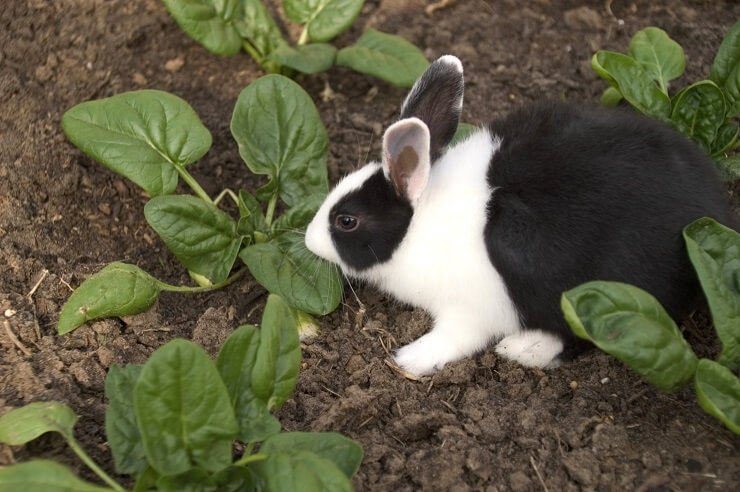
Don’t feed your rabbit spinach more than twice per week and then, be sure you mix it in with other leafy greens – mild options like bibb lettuce, romaine, or rocket are good options. As a general rule, you’ll want to provide at least three different types of green each day.
The Correct Diet is Important
A wild rabbit’s natural diet is not all that exciting compared to the average human’s intake, but don’t feel bad – a bunny’s digestive system is optimized for a diet that consists mostly of grasses. Other leafy greens, a few flowers, and the occasional berry treat rounds things out nicely.
Your pet rabbit will be happiest – and healthiest – with a daily diet that consists of the following items:
- Unlimited amounts of hay such as Timothy hay, which replaces the grass wild rabbits eat, and which helps keep your bunny’s teeth from becoming overgrown.
- A portion of nutritionally complete rabbit pellets; check the package for the correct serving size since this typically varies by brand
- One tablespoon of pumpkin seeds, pepitas, and/or sunflower seeds without added salt, but only if there are no seeds in the rabbit pellets
- One cup of leafy greens and crunchy veggies per two pounds of your rabbit’s body weight; remember to offer different kinds of greens each day
- All-natural treats such as small amounts of fruit and bits of colorful vegetables; always check the correct serving size, particularly when offering sweet fruits
- Clean, fresh water; unlimited amount: Be sure to rinse and refill your rabbit’s drinking bottle at least once a day.
Finally, and as important as what your bunny eats, make sure to provide chewable treats such as hay cubes, untreated softwood branches, unbleached loofah, or coconut shell. Chewing is an important natural behavior that prevents your rabbit’s teeth from becoming painfully overgrown.
What Are Other Healthy Alternatives To Spinach In A Rabbit’s Diet?
Since unlimited spinach isn’t an option, you’ll want to offer your bunny other treats instead. The good news is that there are plenty of options available.
Here are some of the vegetables that rabbits like most:
- artichoke
- cabbage
- swiss chard
- spinach
- endive
- escarole
- beets
- beet tops
- radish
- basil
- cilantro
- asparagus
- mint
- parsley
- carrot
- carrot tops
- romaine
- arugula
- butter lettuce
- bibb lettuce
- bell pepper
- watercress
- okra
- celery
- rocket
- tomato
- broccoli
- broccolini
- zucchini
- buttercrunch lettuce
- green beans
- cucumber
- summer squash
- winter squash
- pumpkin
- parsnip
- bok choy
- yu choy
Even though most veggies are good for rabbits, some foods are toxic or can be harmful when overeaten. This means it’s really important to do a little bit of research before you feed your bunny anything new.
Not only will a few moments of double-checking help keep your rabbit from eating anything that might harm them, it’ll ensure that you provide the correct amount.

Giving your rabbit spinach – in the correct amount and not too often – is a great way to round out their weekly menu and treat them to some essential nutrients.
Frequently Asked Questions
Is spinach safe for rabbits?
Yes! Be sure to wash fresh spinach before you give it to your bunny, just in case there are any chemical residues remaining.
Can spinach make my rabbit sick?
Spinach isn’t likely to make your rabbit sick – in fact, it’s very good for your pet. But if you overfeed it in the long term, it can lead to kidney stones and bladder stones. A careful approach is best.
Can rabbits eat baby spinach?
Just as fresh baby spinach is good for you, it’s great for your rabbit. Follow the same recommendations as you do for full-sized spinach.
Can rabbits eat canned spinach?
No, canned spinach isn’t safe for your rabbit, as rabbits can’t digest cooked foods.
Can rabbits eat frozen spinach?
Frozen spinach is flash cooked prior to being frozen, so it isn’t safe for your rabbit to eat. Only feed your bunny rabbit fresh spinach.






